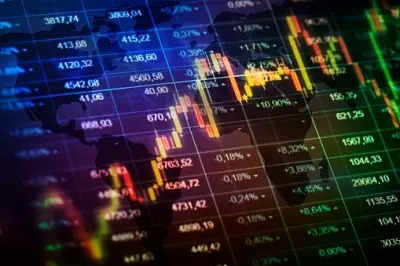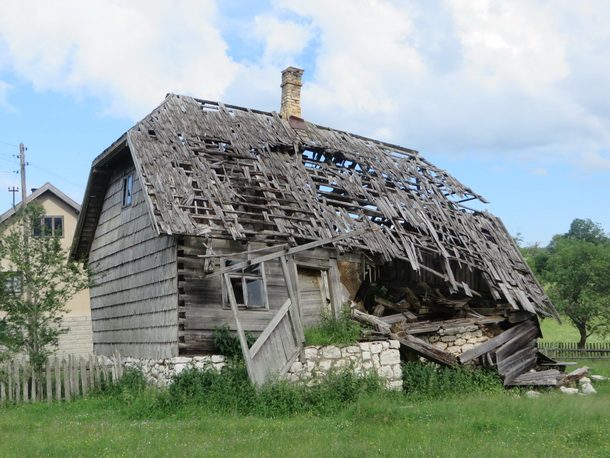Spot Market For Russian Gas: EU Debates Phaseout Strategy

Table of Contents
The Current State of the Spot Market for Russian Gas
The spot market for Russian gas has become a battlefield of its own since the invasion of Ukraine. Price volatility, diminishing supply, and increased reliance on alternative suppliers are defining features of this rapidly evolving situation.
Volatility and Price Spikes
Since February 2022, the spot market for Russian gas has experienced dramatic price fluctuations. The benchmark Title Transfer Facility (TTF) index, a key indicator of European gas prices, has seen unprecedented spikes, reflecting the uncertainty and scarcity in the market.
- Examples of price surges: The TTF index saw record highs in August 2022, reaching several times the pre-invasion levels. Subsequent price drops have also been sharp, demonstrating the inherent instability of the market.
- Impact on EU energy consumers: These price spikes have translated directly into higher energy bills for households and businesses across the EU, contributing to inflation and impacting living standards.
- Comparison to previous years' prices: Pre-invasion prices pale in comparison to the volatility and sustained high prices observed in the past two years, highlighting the profound impact of the war.
Diminishing Russian Supply
Russia's reduction of gas deliveries to the EU has significantly impacted the spot market for Russian gas. These supply cuts, often cited as political leverage, have exacerbated the existing energy crisis.
- Specific examples of supply cuts: Gazprom, the Russian state-owned energy giant, has repeatedly reduced or halted gas flows through major pipelines like Nord Stream 1, citing technical issues and maintenance, although these explanations have been widely disputed.
- Pipeline disruptions: The deliberate damage to Nord Stream pipelines further underscored the fragility of the EU’s reliance on Russian gas infrastructure.
- Impact on market liquidity: Reduced supply has led to increased competition and market tightness, pushing prices upwards and creating significant uncertainty for energy buyers.
Increased Reliance on Alternative Suppliers
Faced with dwindling Russian supplies, the EU has intensified efforts to diversify its gas sources, relying more heavily on Liquefied Natural Gas (LNG) imports and boosting domestic production.
- Countries actively supplying LNG: The US, Qatar, and other LNG-producing nations have increased exports to Europe to help offset the shortfall.
- Challenges in infrastructure adaptation: The EU faces logistical challenges in handling the increased LNG imports, requiring investment in new terminals and infrastructure.
- Progress in renewable energy deployment: The crisis has accelerated efforts to invest in and deploy renewable energy sources like solar and wind power, aiming for greater energy independence.
The EU's Phaseout Strategies and Challenges
The EU’s strategy for phasing out Russian gas is fraught with political and economic complexities. While a complete phaseout is the stated goal, the path is far from straightforward.
Political Divisions within the EU
Member states’ dependence on Russian gas varies significantly, leading to disagreements on the pace and approach to a phaseout.
- Examples of countries heavily reliant on Russian gas: Some Eastern European nations have a far greater reliance on Russian gas than others, making a rapid transition more challenging and politically sensitive.
- Differing national energy policies: Member states hold diverse energy policies and priorities, making consensus-building difficult.
- Potential compromises: The EU is navigating a complex balancing act between swift action and the needs of its most vulnerable member states.
Economic Implications of a Rapid Phaseout
A swift transition away from Russian gas poses significant economic risks, including potentially higher energy costs and recessionary pressures.
- Impact on industries: Energy-intensive industries are particularly vulnerable to price increases, potentially affecting production and competitiveness.
- Consumer affordability: High energy prices strain household budgets, impacting purchasing power and potentially leading to social unrest.
- Government support measures: Governments are implementing measures to mitigate the impact on consumers and businesses, but the effectiveness and sustainability of these measures remain uncertain.
Security of Supply Concerns
The transition period carries risks of energy shortages, particularly during peak demand periods, and vulnerabilities in alternative supply chains.
- Discussion of energy storage capacity: Increasing energy storage capacity is crucial to buffer against supply disruptions and price fluctuations.
- Network resilience: Investing in modernizing and expanding energy infrastructure is essential for ensuring a reliable and robust network.
- Potential for disruptions from alternative suppliers: The reliance on alternative suppliers also introduces new geopolitical risks and potential for supply disruptions.
Long-Term Solutions and Strategies for a Russian Gas-Free Future
The long-term solution lies in building a resilient, diversified, and sustainable energy system independent of Russian gas.
Investing in Renewable Energy Sources
A rapid expansion of renewable energy sources is crucial for achieving long-term energy security and reducing greenhouse gas emissions.
- Investments in solar, wind, and other renewable technologies: Massive investments are needed to deploy renewable energy technologies at scale across the EU.
- EU targets for renewable energy: The EU has set ambitious targets for renewable energy deployment, but achieving these targets requires significant acceleration.
- Grid modernization: Upgrading and modernizing the electricity grid is essential to integrate the influx of renewable energy effectively.
Energy Efficiency Measures
Improving energy efficiency significantly reduces reliance on imported gas, cutting energy costs and environmental impact.
- Building retrofits: Investing in building insulation and energy-efficient appliances can drastically reduce energy consumption.
- Industrial efficiency improvements: Implementing more efficient production processes and technologies in industries can significantly cut energy demand.
- Behavioral changes: Promoting energy-conscious behavior among consumers can also contribute to reducing overall energy consumption.
Strengthening Energy Cooperation within the EU
Closer cooperation among member states is vital for ensuring energy security and coordinating the transition away from Russian gas.
- Joint procurement of gas: Collective buying power can improve bargaining leverage and secure better prices for gas imports.
- Infrastructure sharing: Shared infrastructure investments can ensure greater energy resilience across the EU.
- Harmonization of energy policies: A more unified energy policy across the EU can facilitate a smoother and more coordinated transition.
Conclusion
The EU's strategy for phasing out Russian gas from its spot market presents immense challenges, requiring a multifaceted approach that balances immediate needs with long-term sustainability. Navigating the volatility of the spot market for Russian gas demands swift action on diversifying energy sources, investing in renewable energy, and enhancing energy efficiency. A coordinated, EU-wide effort is crucial to ensuring a secure and sustainable energy future, independent from Russian gas. Understanding the intricacies of the spot market for Russian gas is vital for policymakers and citizens alike in shaping the EU's response to this critical energy challenge. Further research into the specifics of the spot market for Russian gas prices and Russian gas supply disruptions will be essential in navigating this turbulent period.

Featured Posts
-
 Decoding The India Market Buzz Factors Behind Niftys Surge
Apr 24, 2025
Decoding The India Market Buzz Factors Behind Niftys Surge
Apr 24, 2025 -
 Renewed Opposition Car Dealers Push Back On Electric Vehicle Regulations
Apr 24, 2025
Renewed Opposition Car Dealers Push Back On Electric Vehicle Regulations
Apr 24, 2025 -
 Od Djevojcice Do Ljepotice Nevjerojatan Razvoj Kceri Johna Travolte
Apr 24, 2025
Od Djevojcice Do Ljepotice Nevjerojatan Razvoj Kceri Johna Travolte
Apr 24, 2025 -
 Brett Goldstein Compares Ted Lassos Return To A Miraculous Cat Comeback
Apr 24, 2025
Brett Goldstein Compares Ted Lassos Return To A Miraculous Cat Comeback
Apr 24, 2025 -
 Microsoft Activision Deal Ftc Files Appeal
Apr 24, 2025
Microsoft Activision Deal Ftc Files Appeal
Apr 24, 2025
